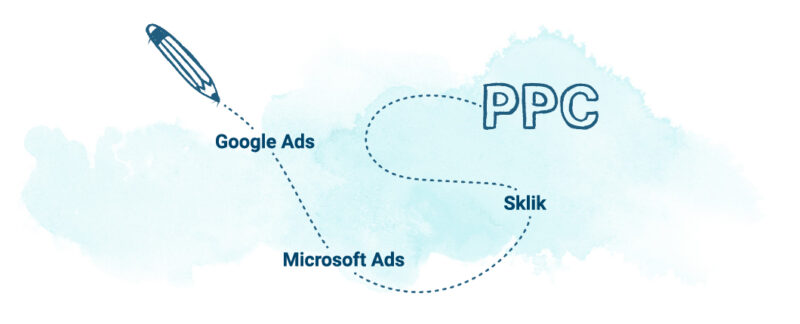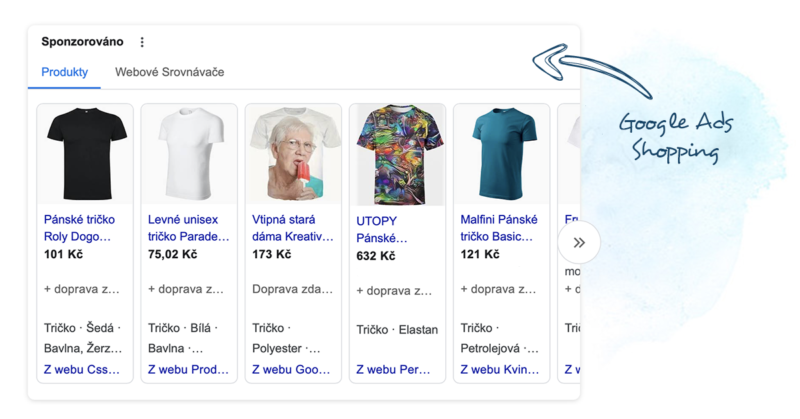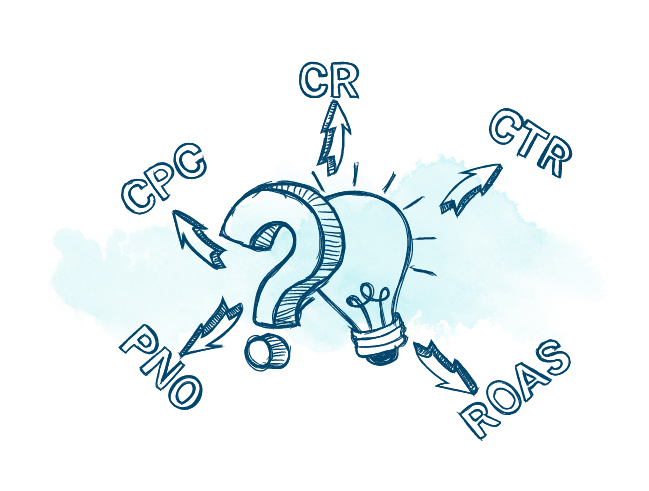
What Does the Job of a PPC Specialist Involve?
Performance campaigns are an essential part of the marketing funnel. What specific tasks are involved in managing these campaigns, and what skills should a PPC specialist possess? Let’s take a closer look at them.

1. Working with Advertising Platforms
In the realm of PPC advertising, various advertising platforms are commonly used. The most frequently utilized platform is Google Ads, which allows advertising on Google’s search engine and reaches 90% of global internet users. Another widely used platform in the Czech Republic is Sklik, which is designed for advertising on the Seznam search engine. While it doesn’t offer the same extensive features as Google Ads, it helps expand advertising reach to another search engine and target different users. Additionally, the cost-per-click (CPC) on Sklik is often lower. The third frequently used platform is Microsoft Ads, which is employed for advertising on the Bing search engine and its partner sites.

2. Campaigns: Creation, Setup, and Basic Segmentation
A PPC specialist’s daily task undeniably revolves around managing campaigns. Setting up campaigns on your own can easily lead to mistakes, which is why it’s better to entrust them to professionals who will configure them correctly from the start to align with the desired goals. Newly launched campaigns lack historical data, so they require more attention, daily monitoring, and adjustments if needed.
Each campaign format serves a different purpose, but PPC specialists most often work with the following types of campaigns:
Search Campaigns
These are primarily text-based ads that appear above (and below) organic search results. They are an effective format for targeting users who know what they are searching for.

Display Campaigns
These campaigns consist of graphical ads and play a significant role in the acquisition phase of the funnel. Engaging visuals are an ideal way to introduce a product or service to users who are unfamiliar with them, or to remind those who have already visited the website. Dynamic remarketing can also be utilized, displaying specific products to users who have previously viewed them, increasing the likelihood of conversion.
Product Campaigns
These are essential campaigns for any e-shop. Not only do they showcase the product in the ad, but also include details like pricing and customer ratings, which boosts the chances of users making a purchase after clicking through. Unlike search ads, where users find out more details after entering the online store, product ads provide key information upfront.

3. Ongoing Campaign Optimization
The daily task of any PPC specialist managing performance campaigns is continuous optimization. It’s crucial to respond promptly to changes in competitor bidding and the overall performance metrics. The effectiveness of a campaign depends on a variety of external factors, requiring constant adjustments. It’s not just about modifying bids, such as cost-per-click (CPC); there are countless elements within accounts that can be fine-tuned and tested. What worked well a month ago may no longer be as effective today, so regular campaign adjustments are essential to maintain and improve performance.
What needs to be monitored?
Keywords and Search Queries
Are the clicks coming from relevant search queries? Regularly checking this ensures that users who genuinely search for the products offered on your site are being directed through the ads. This helps in refining the targeting so that the right audience is engaged.
Ad Positioning and Cost-Per-Click (CPC)
What positions do the ads appear in, and what are the CPC rates for keywords? While being in the top position is desirable, it doesn’t guarantee conversions if the offer isn’t compelling enough. On the other hand, if the bid is too low, the ads may not appear in visible spots, allowing competitors to capture the better positions. A PPC specialist’s role is to set bids strategically so that the campaign brings users to the website at a reasonable CPC.
Meeting Objectives and Return on Investment (ROI)
The primary goal of a campaign is to meet the set objectives, whether it’s generating sales or leads. It’s normal for campaign performance to dip temporarily, and overreacting to daily fluctuations can cause more harm than good. However, if a campaign fails to meet its goals for several days, intervention is necessary to make adjustments that can turn things around. Campaign data should also be cross-checked with results in GA4 or the e-shop’s admin to ensure accurate tracking.
Click-Through Rate (CTR)
CTR is used to measure how relevant and attractive the ads are to users. It represents the percentage of people who saw the ad and clicked on it. CTR can fluctuate over time, influenced by factors such as the visual design of the ad, targeting, or even bid levels. Regular adjustments based on CTR help optimize the relevance and performance of the campaigns.
4. Reporting and Communication
PPC specialists evaluate ongoing campaign performance through reports, which are then communicated to account managers (project managers) and other team members working on the project. This involves everything from budget allocation across platforms to adjusting spend throughout the month. At the end of the month, they are responsible for summarizing activities for a given period. Additionally, they provide insights to help the client understand current changes or trends in ad accounts.
5. Working with Product Feeds
Which products are included in campaigns and what information is displayed depends on product feeds. PPC specialists are responsible for managing and reviewing these feeds, ensuring that no products are blocked, for example. By tweaking titles, descriptions, or product images, they can achieve better results and optimize shopping campaigns effectively.
6. Managing Product Comparison Platforms
Platforms like Heureka or Zboží also fall under the responsibilities of PPC specialists. Managing product comparison engines involves checking product pairing accuracy and adjusting bids for paid positions, ensuring optimal visibility and competitiveness.
7. Overseeing Promotional Campaigns
When a client plans a discount or promotional event, performance campaigns can be leveraged to boost its success. In such cases, the PPC specialist’s role is to plan which ad formats are best suited for the event, request creative assets, or create selections of discounted products. The campaigns need to be carefully timed, and toward the end of the promotion, a “last call” can be launched to persuade undecided users to make a purchase.
Managing PPC campaigns is a highly complex task involving more activities than it might seem at first glance. Each account can be explored in great detail, with continuous testing of new approaches to bring the client closer to their desired goals. We’d be happy to help you as well—just get in touch with us to get started!
Glossary of Terms ![]()
CPC (Cost Per Click)
The cost per click. This indicates the average price of one click on an advertisement.
CTR (Click-Through Rate)
Click-through rate. It shows the percentage of all users who saw the ad and then clicked on it.
PNO (Cost-to-Revenue Ratio)
The ratio of advertising costs to revenue. It shows what percentage of sales is made up of advertising costs.
ROAS (Return on Advertising Spend)
The inverse of PNO. It indicates how much revenue is generated for every dollar (or currency unit) spent on advertising.
CR (Conversion Rate)
Conversion rate. It indicates the percentage of users brought in by the ad who completed the desired action (conversion).


